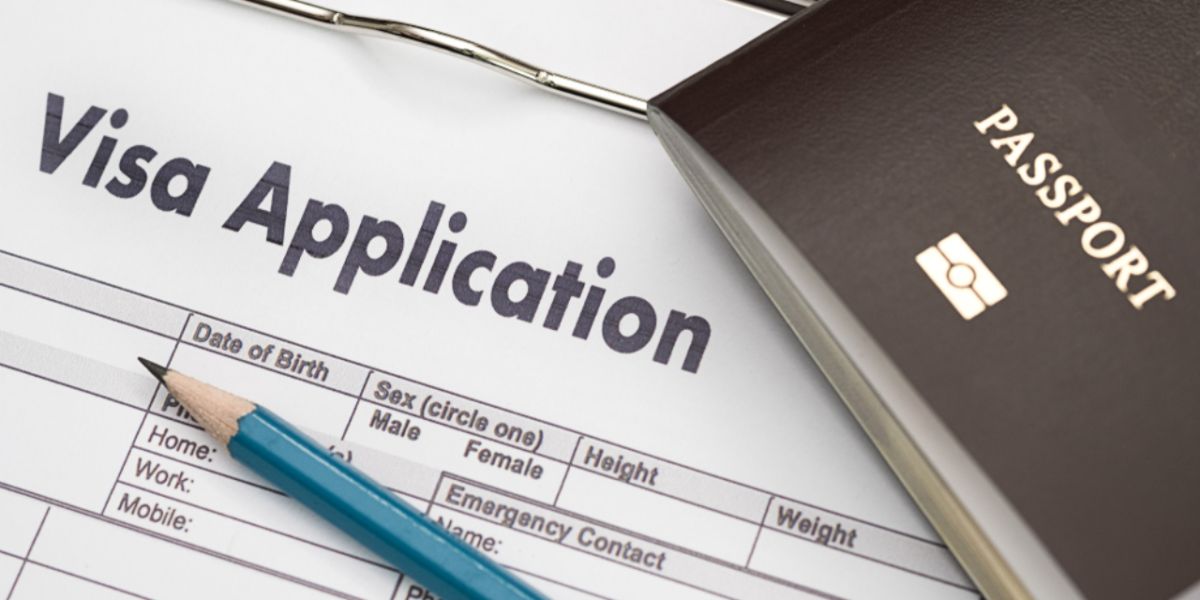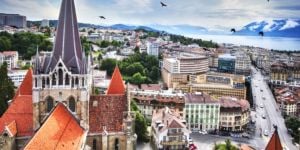
Every country has its own set of entry policies. In Switzerland, the requirements vary depending on your nationality, the duration of your visit, and the reason for your travel. Here is some information about visa requirements for Switzerland that you should be aware of.
Traveling to Switzerland: How to distinguish between visa, residence permit and work permit
It's easy to mix up these three official documents. A visa is necessary for entry into a country and must be acquired before arrival. It allows you to visit the country for a particular purpose and period of time (like tourism, study, or business).
After entering the country, the visa may have extra requirements or possibilities for extensions, but it doesn't provide permanent residency or work privileges. Hence, having a visa doesn't eliminate the requirement for a residence permit to remain in Switzerland.
A residence permit allows you to stay legally in a country for a set period due to reasons like study, work, or family. This official document is granted by local authorities after your arrival and may include conditions, such as limits on how long you can stay or the activities you can participate in (such as work).
On the other hand, a work permit specifically authorizes you to work legally in Switzerland. Although residence and work permits are connected, holding a residence permit doesn't automatically give you the right to work. You need to fulfill specific requirements, like the nature of the job and the duration of the work contract, to obtain a work permit.
Who needs a visa to enter Switzerland?
If you are a national of a member country of the European Union (EU) or the European Free Trade Association (EFTA)
You don't need a visa to enter Switzerland. EFTA includes Iceland, Liechtenstein, Norway and Switzerland.
You already have a visa or residence permit issued by a Schengen member country
You do not need another visa to enter Switzerland. However, your stay must not exceed 90 days (per 180-day period).
The following 27 countries are currently part of the Schengen agreement: Austria, Belgium, Croatia, Czech Republic, Denmark, Estonia, Finland, France, Germany, Greece, Hungary, Iceland, Italy, Latvia, Lithuania, Luxembourg, Malta, the Netherlands, Norway, Poland, Portugal, the Principality of Liechtenstein, Slovakia, Slovenia, Spain, Sweden, and Switzerland.
You are a third-country national
Whether you need a visa depends on your nationality. Check the list of travel document requirements on the Swiss Confederation website to see if you need a visa.
What types of visas are available in Switzerland?
Foreign representations (consulates, embassies) and the State Secretariat for Migration (SEM) can issue two main types of visas for Switzerland, depending on the purpose of your stay:
C visa
The C visa, also known as the "Schengen visa," allows entry and short visits of up to 90 days within a 180-day timeframe. It is primarily designed for tourism, visiting loved ones, attending sports or cultural events, business trips, or academic and study stays.
The visa is valid across the entire Schengen area.
D visa
Also known as the "national visa", the D visa is required for the following reasons: gainful employment, family reunification, training, or further education.
This visa is for long-term stays (over 90 days).
How do I obtain a visa for Switzerland?
Where do I apply for a visa?
If you require a visa to enter Switzerland, submit your application to the Swiss embassy or consulate overseeing your residential region.
For Schengen visas allowing stays of up to 90 days, you can apply for a visa to Switzerland online through the visa system.
What are the steps to applying for a visa?
The visa application form (C or D) can be found on the website of the Swiss embassy or consulate in your country or the State Secretariat for Migration (SEM).
The documents usually required to obtain a visa are as follows:
- Completed and signed visa application form;
- Valid passport;
- Passport-size photos complying with the required specifications;
- Proof of round-trip ticket reservation;
- Proof of accommodation reservation (e.g., hotel booking confirmation).
Depending on your nationality, you may be asked to provide additional documents, such as:
- Letter of invitation if you are invited by a Swiss resident;
- Declaration that your host will cover your expenses (up to CHF 30,000);
- Travel insurance covers medical expenses for the entire period of your stay.
It is advisable to submit your visa application early. The SEM website suggests applying at least two months before your intended travel date.
Good to know:
If your visa application is rejected, you have the option to appeal in writing to the SEM within 30 days of receiving the decision.
How much does a visa for Switzerland cost?
Here are the costs for a C visa:
- Adult visa: 80 euros.
- Children's visa (6 to 12 years): 40 euros.
- Visas are free for children under 6.
For a D visa, fees may be increased by 50%.
Who needs a residence permit in Switzerland?
If you adhere to the timeframe specified by your C or D visa, you won't require a residence permit. Nevertheless, if you wish to extend your stay, you will need to apply for one.
Residence permits are typically linked to your authorization to work in Switzerland.
It is important to mention that Switzerland's residence permit regulations differ based on your nationality.
Different types of residence permit for EU/EFTA nationals
B Permit (residence permit): For residents who live in Switzerland year-round, whether they are employed or not, and who are staying for a specific purpose;
C Permit (settlement permit): For long-term residents who have lived in Switzerland for five or ten years, the C permit is issued for an indefinite period with no conditions attached;
Ci permit (residence permit with gainful activity): This permit is granted to the spouses and children of employees working for intergovernmental organizations (IOs) or foreign representations. It is valid for the same duration as the primary holder's permit;
G Permit (crossborder commuters' permit): for people living in a border area and working in Switzerland;
L Permit (short-term authorization): for short-term gainful employment (generally for less than a year) or other temporary stays.
Good to know:
In Switzerland, citizens of the EU and EFTA are allowed to bring their families together, no matter what nationality their family members are. This includes spouses and children under 21, as well as dependent children.
Different types of residence permit for non-EU/EFTA nationals
The permits have the same name for non-EU/EFTA nationals, but the conditions for granting them are more difficult to meet.
In addition to the L, B, C, Ci, and G residence permits mentioned above, there are the following permits for non-EU/EFTA nationals:
F Permit (for foreigners admitted temporarily): This applies to individuals who have been ordered to leave Switzerland but face obstacles to removal, such as violations of international law, risks to their safety, or practical impossibilities. Provisional admission is granted for up to twelve months.
N Permit (for asylum seekers): These individuals are undergoing an asylum procedure and have the right to reside in Switzerland during this time.
S Permit (for persons in need of protection): These are people in a war situation in their own country, for example.
Good to know:
The requirements for retiring in Switzerland are similar to those mentioned earlier. The steps to obtain a visa and residence permit largely depend on your nationality.
If you're considering an internship in Switzerland that lasts longer than 90 days (for EU citizens), you'll need a valid residence permit. Non-EU citizens will need a visa to enter the country. You can visit the State Secretariat for Migration's website for more detailed information.
Do international students need a residence permit for Switzerland?
Yes, you need a residence permit to study in Switzerland.
First, you need to obtain an admission letter from the educational institution you'll be attending. After you have this letter, make sure to apply for a residence permit in the canton where you'll be living within 14 days.
In general, the other documents required are:
- A personal residence application;
- An identity document;
- Proof of financial means to cover the cost of your studies;
- Proof of a residential address;
- 2 passport-size photos.
Students from third countries need to obtain a visa before entering Switzerland. They should contact the Swiss embassy or consulate in their home country.
Naturalization in Switzerland
Who exactly is eligible? There are five conditions for naturalization in Switzerland:
- To have lived in Switzerland for twelve years (years spent in Switzerland between the ages of 10 and 20 count double);
- Be integrated into the Swiss community;
- Be accustomed to Swiss customs and practices;
- conform to the Swiss legal system;
- not jeopardize Switzerland's internal or external security.
Foreign spouses can apply for facilitated naturalization if they meet certain conditions. This option is available after living in Switzerland for five years, and the marriage must have lasted at least three years. Additionally, children who are not Swiss but have a Swiss parent can also qualify for facilitated naturalization.
We do our best to provide accurate and up to date information. However, if you have noticed any inaccuracies in this article, please let us know in the comments section below.








